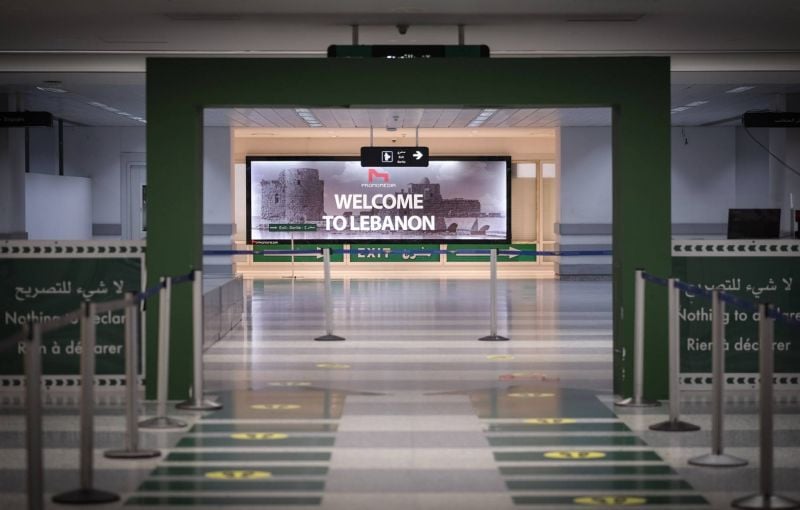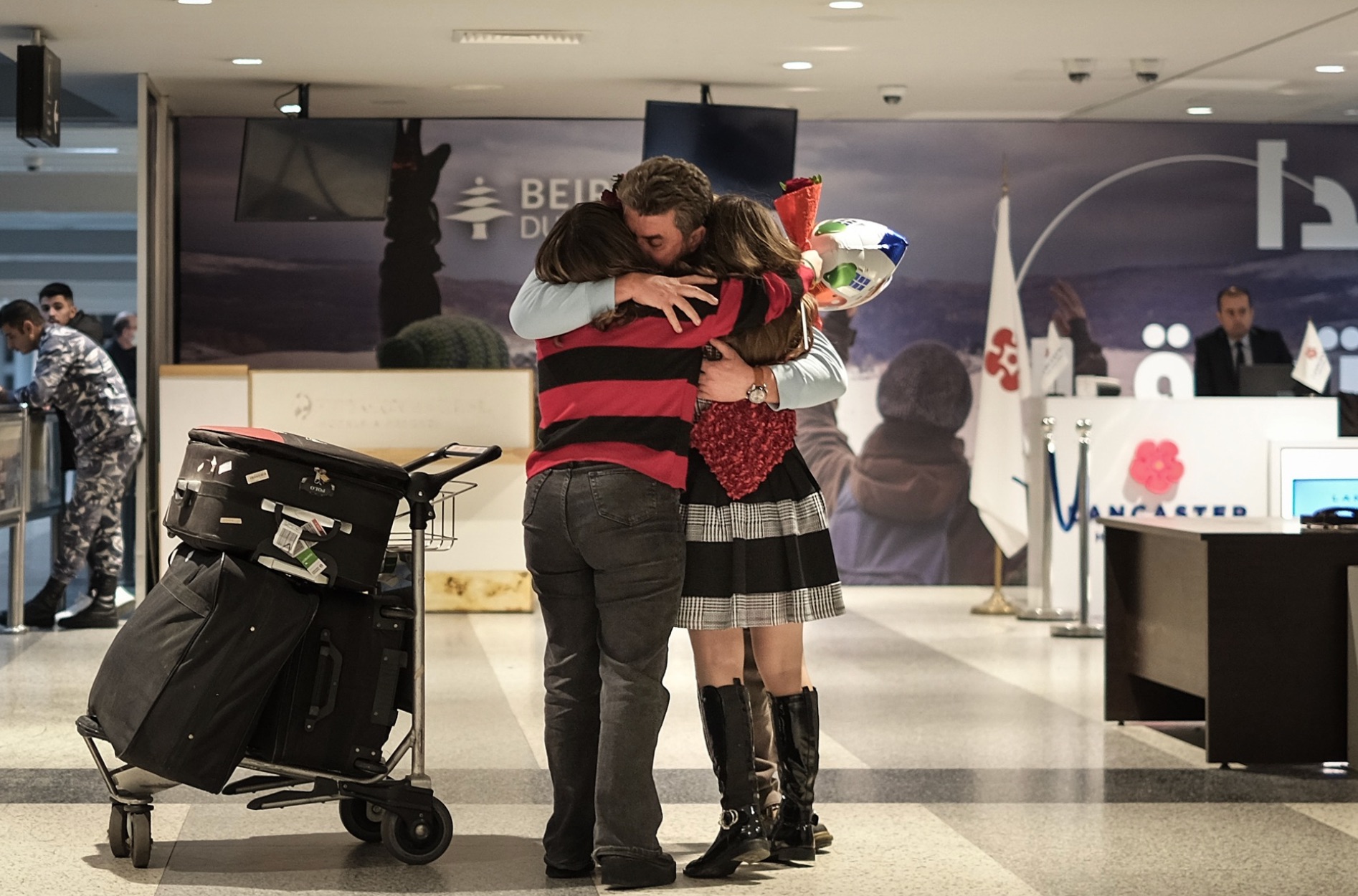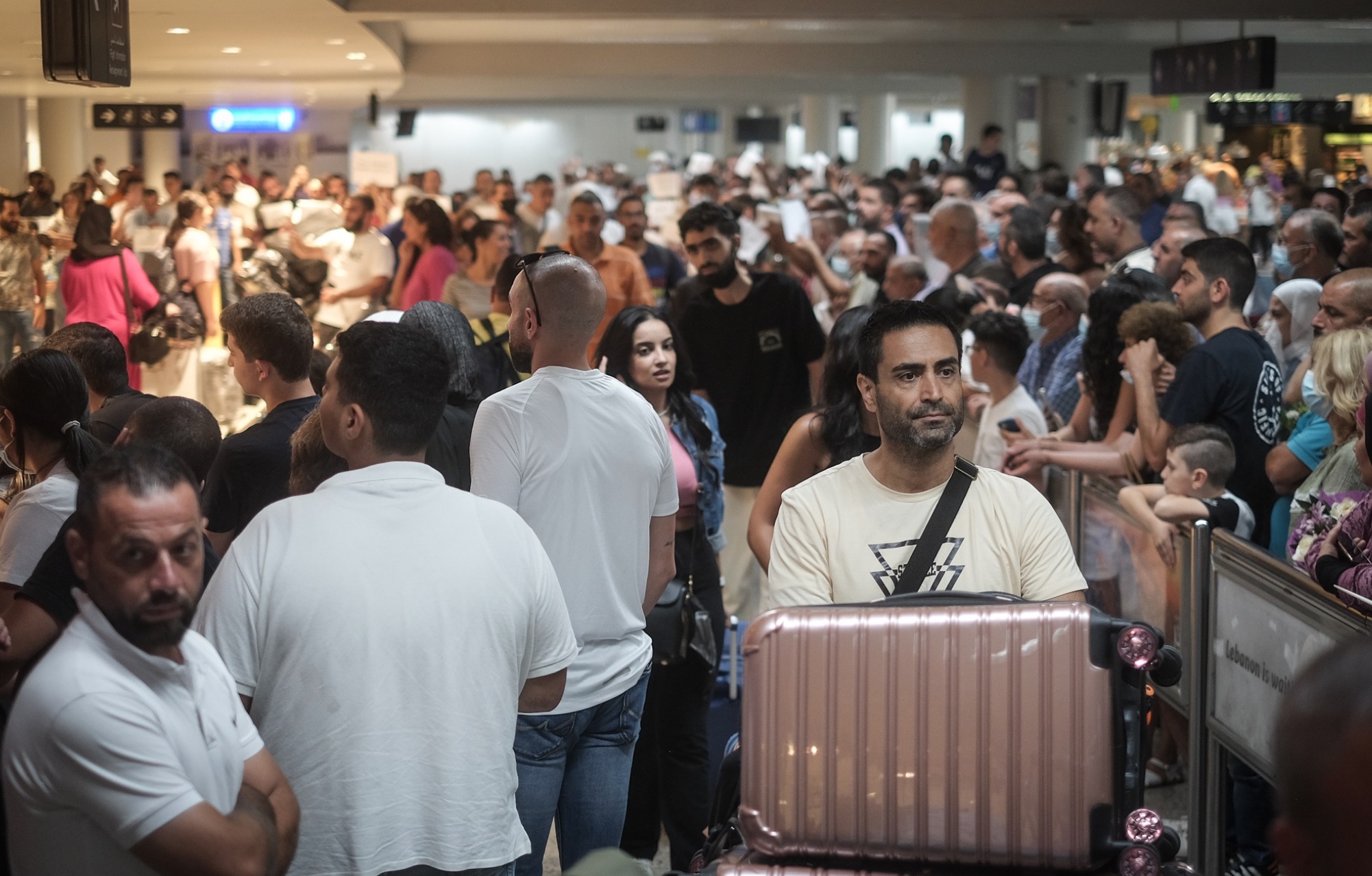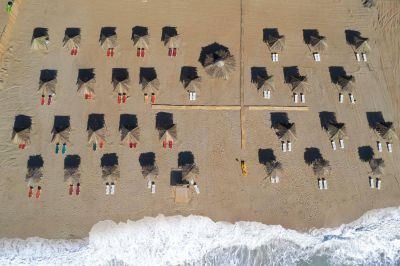
'Welcome to Lebanon' billboard at the Rafik Hariri Airport arrivals terminal. (Credit: João Sousa/L'Orient Today/File photo)
BEIRUT — “As long as bombs are not raining down on Beirut, you will find me there. Rain or shine,” 45-year-old car dealer Ali Hijazi told L’Orient Today on the phone from Berlin.
According to caretaker Tourism Minister Walid Nassar, Lebanon is expecting more than two million visitors this summer, the highest level since the start of the economic crisis in 2019. This is still lower than in 2018, just before the crisis, when, according to General Security, some 2.8 million people entered the country for summer.
Imad Salamey, political science professor at the Lebanese American University, said he believes one of the reasons people are coming back en masse this summer is because for the first time, people are not afraid of a possible war with Israel.
Daniya Sahili, a graphic designer based in Dubai backed his claim, adding she was planning on a visit to Lebanon. “This is the first summer where we aren’t afraid of an escalation with Israel. You could say it’s the first summer in years where I plan to come to Lebanon and I’m not worried about a possible full scale war,” she said.
This is thanks to March’s China-brokered Iran-Saudi deal, which restored diplomatic relations between the two countries after a stalemate of more than seven years.
“The Iran-KSA deal is good news for Lebanon and is a reflection of greater stability in the country. The deal has not only brought more peace into Syria but also into Lebanon,” Salamey told L’Orient Today.
“This is the era of deescalation of tension in the region and this is a source of comfort for Lebanese living abroad who want to come to Lebanon and are worried about the situation,” Salamey added.
‘I save all year to spend in Lebanon’
Dana Saoudi, a mother of four who lives in Qatar, told L’Orient Today she is coming for a summer visit.
“I save all year to spend my money in Lebanon, with the only people who matter: my family,” Saoudi said.
 Family reunions are a common scene at Beirut's airport, especially during holiday season. (Credit: João Sousa/L'Orient Today/File photo)
Family reunions are a common scene at Beirut's airport, especially during holiday season. (Credit: João Sousa/L'Orient Today/File photo)
Nassar told L’Orient Today that the wave of visitors will bring an expected $10 billion in revenue to the country.
Asked how the crisis-hit country will handle the large number of visitors, Nassarsaid the ministry has “previously allowed institutions to price in dollars so that the visitor does not fall victim to the arbitrary fluctuation of the exchange rate.”
 Restaurants and bars are usually full, despite the ongoing socio-economic crisis. (Credit: João Sousa/L'Orient Today/File photo)
Restaurants and bars are usually full, despite the ongoing socio-economic crisis. (Credit: João Sousa/L'Orient Today/File photo)
The lira has lost over 90 percent of its value on the parallel currency exchange market since 2019.
“The Ministry has circulated to all tourism establishments that prices must be announced clearly and at the entrance of the establishment in a way that allows the visitors of the establishment to know the price before choosing,” Nassar told L’Orient Today.
“Even though some people are complaining about the prices, Lebanon is using the system used worldwide. We have restaurants, sites and hotels with ranging prices and tourists and expats can choose what suits them, that's how it is everywhere,” he said.
Lebanese people learned to accommodate
“The security concerns are not only less, but almost three years into the crisis, the Lebanese have learned how to cope and accommodate using alternate sources of energy to compensate for the lack of services by the government,” Salamey said.
 A crowded arrivals terminal at Beirut airport during high season. (Credit: João Sousa/L'Orient Today/File photo)
A crowded arrivals terminal at Beirut airport during high season. (Credit: João Sousa/L'Orient Today/File photo)
“Solar panels, and informal ways of functioning, that are a blessing and a curse, provide comfort for expats and this is inviting to them,” he added.
As with every holiday season, Beirut’s international airport will be overwhelmed with travelers, considering its logistical gaps and capacity limits.
In March, caretaker Public Works Minister Ali Hamieh backtracked on plans to add a second terminal to the airport, which would have been financed by an Irish company, after criticism regarding the project’s legality.
“In terms of tourism, compared to previous years, and in relation to the conditions, the situation is good and promising, and we are waiting for a promising tourism season that contributes to moving the economy,” Nassar concluded.
